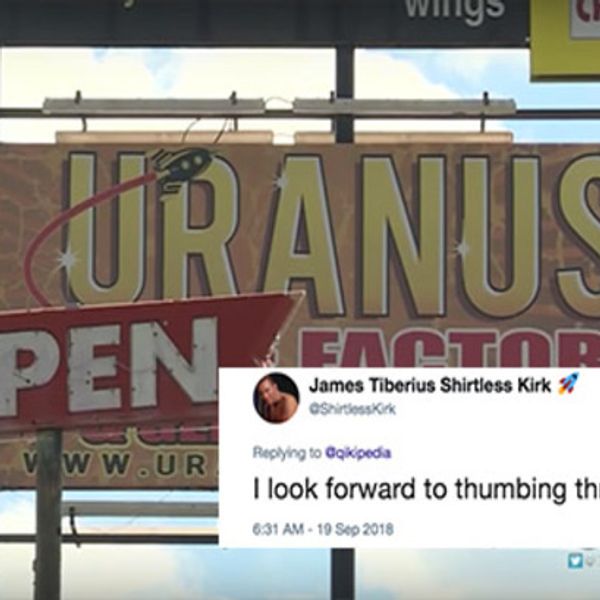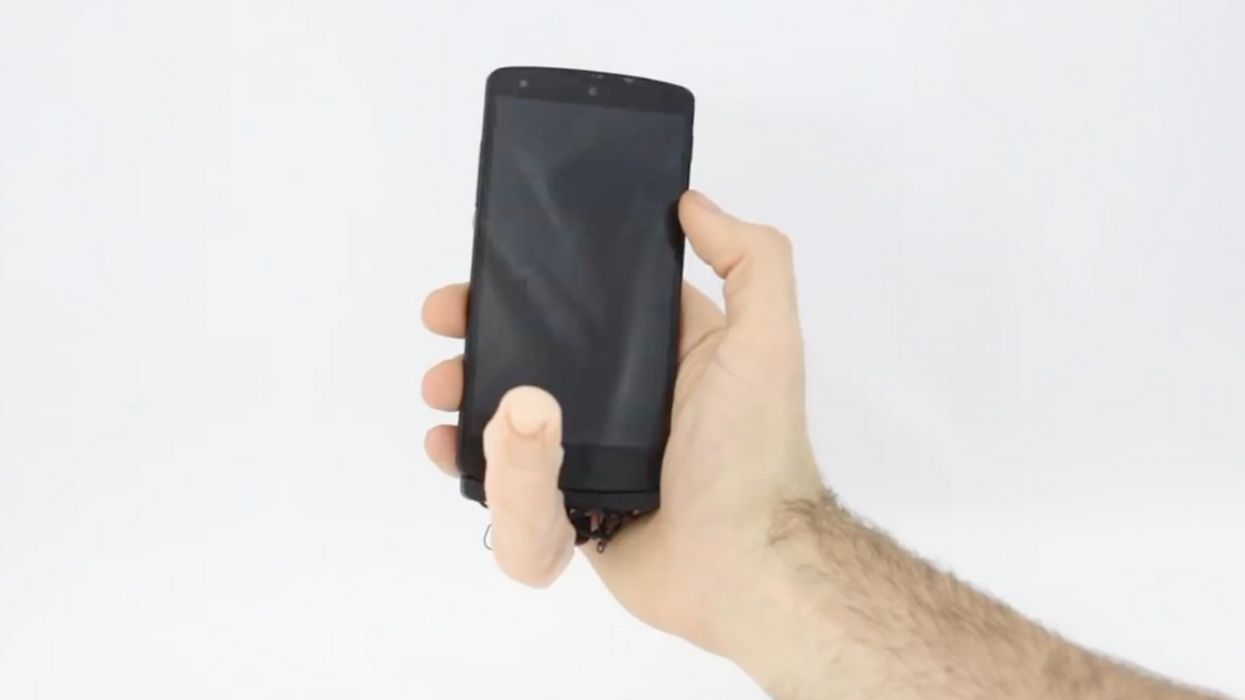December, 2000, OSAKA, Japan - A trip to Japan is like a continuous time warp back and forth through history, from the past to the cutting-edge present, then back to the ancient. My mission was history based. The international opening of the Japanese American National Museum's traveling exhibit on the history of the Japanese Americans of Hawaii at the Okinawa Prefectural Museum in Okinawa, Japan.
My arrival in Japan was at Kansai International Airport, a stunningly contemporary facility built on a vast man-made island in Osaka Bay. The Japanese flair for efficiency and design, rationality melded with style, made the normally punishing process of an international transit a smooth, in fact, pleasurable, experience. We sailed through customs, exchanged our dollars for yen, had a tasty light snack of buckwheat noodles all in stylish comfort, and we were on our way to our destination, Okinawa.
The opening of the museum's exhibit was a great success. A large contingent of museum supporters and staff were in attendance, including Irene Hirano, the museum's president and executive director. U.S. Ambassador to Japan, Thomas Foley, U.S. Senator from Hawaii, Daniel Inouye, Lt. Governor of Hawaii, Mazie Hirono, and Governor Inamine of Okinawa were our honored guests together with more than 250 other Americans who had traveled to be with us for the opening. As the only American to speak at the ceremony in both Japanese and English, I became something of the bridge to mutual understanding that is the point of our exhibit.
The following day was back to the future. The museum sponsored a special educational program at the National Okinawa Youth Center on Tokashiki Island, a fast jetfoil ride away from the main island. The program featured two astronauts from NASA, Daniel Tani, a Japanese American from Chicago, and Mamoru Mohri, a Japanese astronaut who has flown two NASA space missions in the past two years. The program had the eyes and imagination of the young people of Okinawa soaring to the stars.
From Okinawa, I flew to the southern Japan city of Fukuoka because of my personal interest in architecture. I had read that American architect Jon Jerde had designed a remarkable project in Fukuoka called Canal City. Remarkable it is! Jerde has designed a fancifully futuristic commercial complex incorporating one of the many canals of Fukuoka. There are restaurants and shops galore, offices and educational facilities and a dazzling multiplex cinema and a grand theater for Broadway musicals - indeed a traveling production of Disney's "Lion King" was the next production booked. Whimsically geometric structures snake and undulate following the curves of the canal. The canal itself spouted jets of water five stories up. Lights bubbled and flickered or glowed and subtly illuminated the contours of the fanciful buildings. There were performers on little peninsulas out on the canal. But the cascade of people flowing up and down the escalators and stairways made simple people watching just as entertaining. Jerde's creation is an architectural Broadway musical. And my actor's instincts led me to book my hotel reservation at the Hyatt Grand right smack center stage in the middle of the whole colorful production. I lived for two days and two nights in an architect's theatrical fantasy.
Then a super-fast bullet train sped me right back into history. When it stopped, we transferred to an old-fashioned ferry that sailed leisurely toward the legendary shrine island of Miyajima shrouded in the mist of history. As a matter of fact, there was a light mist in the air as we approached the famous floating torii gate to Itsukushima Shrine that seems to mystically rest on water. Legend has it that because the island is considered sacred, there were no births or deaths allowed on it. That all had to take place on the mainland. Even today, there is no hospital on the island. However, at the ferry station, we did take a taxi, instead of the rickshaw, to our lodging. As we were driven through the narrow passageways of the village of Miyajima, it felt as though we were passing through the set of a samurai movie. A short way up the hillside and we arrived at a magnificent Japanese villa. This was the historic Iwaso Inn, one of the great lodges of Japan. We were gracefully ushered by a charming kimono-clad chambermaid to a classically formal Japanese room. Beyond the veranda lay a serene view of a maple forest. I could have sat meditating on that veranda all day. But we had so much we wanted to do.
It was autumn and the forest had turned a spectacular palette of reds, oranges, and yellows as well as the deep greens of the evergreens. We took a cable ride high over the spectacularly painted forest to the topmost point of the island. We fed the famously hungry tame deers that roam the island of Miyajima. We trooped through the shrine with the day-tripping tourist horde. Exhausted, we returned to our inn. I soaked in the hot Japanese bath gazing up at the steam wafting through the pine branches. Every tired muscle in my body seemed to melt into blessed relaxation.
Shortly after I had changed into my formal kimono provided by the inn, a gentle knock came on our sliding door. Our chambermaid was ready to serve us dinner. The low, spacious lacquered table in our room became the stage for a seemingly endless parade of small, artfully arranged dishes presented with elegance and grace. This was the renowned "kaiseki" dinner of ancient Japan. When the last delicious morsel had been served, the chambermaid suggested that we go for an after dinner stroll on the island. Miyajima at night, she urged, is something quite special.
She was so right. The island was magically transformed. The hurly burly of the day-trippers had disappeared and in its place was a tranquil scene of kimono-clad people quietly admiring the illuminated shrine and pagoda. The reflection of the shrine on the calm, dark water made it seem almost supernatural. On our way back, we ambled past the detached villa of our inn that was reserved for the emperor. Emperor Hirohito himself, we were told, had regularly stayed there. When we returned to our room, the lacquered table had vanished and in its place futon beds had neatly been arranged. That night, I slept deeply dreaming the dream of some past emperor.
Another quick bullet train ride the next day and we were in the shining new metropolis of Hiroshima. This city, flattened by the devastation of the atomic bomb over half a century ago, has rebuilt itself into a modern urban center of broad, tree-lined boulevards, tall glassy buildings and, at its focal point, a leafy park dedicated to international peace, the center of which is the Peace Museum. The exhibit there is a deeply moving chronicle of the human suffering as a result of the dropping of the bomb.
In Hiroshima, I was back to wearing my hat as the chairman of the Japanese American National Museum. After Okinawa, we want to tour our exhibit throughout Japan. It is currently set for Osaka in March of 2001. Because a large number of Japanese immigrants came from Hiroshima, as indeed my maternal grandparents did, we would very much like to see our exhibit visit there. I had met Governor Yuzan Fujita of Hiroshima on a previous visit and so had arranged to meet with him again to gain his support and guidance finding a way to get our exhibit to Hiroshima. The Governor greeted me warmly and, after I made my request, he immediately had ideas of a venue to be considered. He called for his personal car and driver and promptly dispatched me to examine his suggested site. Transported in the luxurious comfort of the Governor's car, I toured a handsome new exhibition hall. I now feel rather confident that the people of Hiroshima will be viewing our exhibit.
After visits with relatives in Hiroshima, I was back on the bullet train for my final stop on this trip, Osaka. The Second City of Japan is an overwhelming metropolis of congested traffic, bustling commerce and energetic people. And this is where the popularity of Star Trek in Japan is enormous. Through Russ Haslage of the Excelsior campaign, fans in Osaka had contacted me, and a charming young lady, Sachie Kubo, had made arrangements, to show me their city.
When I checked into my hotel room, the view that greeted me through my window was of the great Osaka Castle, the most spectacular historic structure in Japan. Circled by a wide moat protecting a lush park-like area, then looming up on a base of gigantic boulders amazingly fitted together, the castle sparkled in the sun with its golden embellishments. I had to go across immediately to tour it.
Crossing the arched bridge over the moat felt like the prelude to entry into the past. This was the very place where great battles were fought by the most powerful shogun in Japan's history, Toyotomi Hideyoshi. Stepping into this storied precinct, I felt as though I were going back in time. That illusion was immediately smashed when a trendy young runner jogged by wearing a shiny spandex running outfit, then another wearing earphones with a thin metallic antenna bobbing over his head. I learned that the park inside the moat was one of the popular running paths of Osaka. As I walked through the outer entrance of the castle and the gigantic wood gate studded with black iron braces, I recognized it immediately from the television mini-epic, "Shogun." I remembered that this was where it was filmed on location. We trudged up a seemingly endless series of gray granite steps to the castle's main entrance. As we huffed and puffed, our straining muscles let us know how impregnable this castle must have been to the warlords who attacked it. We paid our admission and walked in. I stood there stunned. In front of us was a bank of elevators! There were video displays on the history of the castle built right into the walls! And I felt the comforting warmth of forced air heating in this ancient castle! I learned from a brochure that this historic castle had been completely rebuilt just a few years ago -- with all modern conveniences to boot. With a slight sense of disillusionment, we took the elevator to the top of the castle. The view was great. We were taking in the panoramic vista of modern day Osaka from the highest point of the castle, when I heard an American accented voice shout at me, "My god! You're Mr. Sulu, aren't you?" With one excited exclamation, I was brought from my fantasies at the pinnacle of this recently rebuilt ancient castle, back to my very own present day reality. The cameras flashed as I posed for pictures with American Star Trek fans touring in Osaka.
I spent the following day with Japanese Star Trek fans in Osaka. Four beaming faces were waiting in the hotel lobby that morning to show me the sights of this city. Sachie Kubo and Masanori Mizuumi were from Osaka but I was both flattered and moved to discover that Yoshimitsu Murata and Youichi Nieda, whom I had met on a previous trip to Tokyo earlier this year, had traveled all the way down from Tokyo to share the day with me.
It was a fun-filled day of roaming through a vibrant and engaging metropolis of busy marketplaces and elegant shops, raucous entertainment quarters and traditional bunraku theater and temples and shrines. We even saw a traditional wedding ceremony taking place at one of the temples. That evening, about a dozen more fans joined us at a restaurant for a lovely dinner of Japanese hot pot and conversations about the Excelsior campaign. The savory steam that wafted up from the bubbling pot of vegetables, seafood, noodles and other delicious morsels seemed to warm new friendships and enhance old ones.
All to soon, our 10-day trip to Japan was coming to an end. The next afternoon, we were on the express train to Kansai International Airport for our flight to Los Angeles - home to prepare for the holidays. As I write this on my laptop in the airport lounge in Osaka, I'm reminded of the many events of this past year. Much has happened, great and small. We have much to be thankful for. And much we need to do in the future. May I wish you all the joys and blessings of this holiday season.
Clever Dog Tricks McDonald's Customers Into Feeding Her By Pretending To Be A Stray 😂
It's a dog eat dog world out there and sometimes a girl has to do what a girl has to do. At least that's what one dog owner realized when she caught her pooch trolling the streets looking for an easy meal.
Facebook user Betsy Reyes busted her dog Princess who was out moonlighting as a stray in order to play on the sympathies of strangers. It seems Princess likes to wander off to her favorite hangout, the local McDonald's, and work the drive through lane like a pro.
And that's what she did right up until Reyes busted her scam. Reyes, who lives in Oklahoma City, took to Facebook and outed Princess in the most hysterical way, saying:
"If you see my dog @ the McDonald's on shields, quit feeding her fat ass bc she don't know how to act & be leaving the house all the time to go walking to McDonald's at night. She's not even a stray dog. She's just a gold diggin ass bitch that be acting like she's a stray so people will feel bad for her & feed her burgers."
Lots of scammers out there.
@CBSNews My lab Would jump the fence every morning as I got ready to work and when I went to leave he would reappea… https://t.co/NJhg4ZuGq1— Anneik 💛 (@Anneik 💛) 1540434345.0
@CBSNews https://t.co/UqWvClKi8z— Bruinlover- follower of Nakia (@Bruinlover- follower of Nakia) 1540418292.0
@CBSNews I TOOK MINE TO THE DRUGSTORE AND WHILE I WAS PAYING HE STOLE A CANDY BAR, WALKED RIGHT OUT THE DOOR WI… https://t.co/U3DlWunzcK— PUEBLO294 (@PUEBLO294) 1540415919.0
@LCaro294 @CBSNews Mine stole a butterdish at my mum’s house, ate all the butter then buried the butterdish to hide the evidence.— Tricoteuse (@Tricoteuse) 1540418005.0
@CBSNews My dog would 100% do this if she could get out of the house. On our walks she stands in the doorways of fo… https://t.co/33ovz44HUX— Skulls&Bacon (@Skulls&Bacon) 1540420511.0
@BillichThomas @skullsandbacon @CBSNews 100% would hand over my bagel, if only because she looks so annoyed with me… https://t.co/aQs5qKhETN— Claire Pettie (@Claire Pettie) 1540434235.0
It's an adorable story, but maybe get the dog a collar with identification?
@CBSNews Pretends? Leaves the collar stashed around the corner, or what?— Jim Snell (@Jim Snell) 1540429214.0
@CBSNews This is adorable but this dog should 100% be wearing a collar and also get microchipped! Love this story :)— Minka “ACAB” Eisenhower (@Minka “ACAB” Eisenhower) 1540418766.0
Not everyone thought the story was cute.
@CBSNews Great way to keep your dog safe. 🙄— 🧚🏻♂️ Free Hugs 🌊 🇺🇸🇳🇴🇫🇮☮️⚛️ Ⓥ🌱😷 (@🧚🏻♂️ Free Hugs 🌊 🇺🇸🇳🇴🇫🇮☮️⚛️ Ⓥ🌱😷) 1540414161.0
@CBSNews Unless you can keep your dog safe at home and not out in traffic where she could be hit by a car, stolen,… https://t.co/6BMPMLYgYs— Lindsey McBride (@Lindsey McBride) 1540435397.0
Of course, when a girl's gotta eat, a girl's gotta eat.
@chabsmescudi Funny.... but time to build a super gate. https://t.co/NZBE1s3lm6— OEL𝕊𝕂𝕐 (@OEL𝕊𝕂𝕐) 1540238320.0
@chabsmescudi The dog: https://t.co/FSmeFYhspT— Angie (@Angie) 1540231585.0
@BetsysReyes @chabsmescudi Your dog every night after standing on the road https://t.co/mrTCMOtOVA— N.A.S.A (@N.A.S.A) 1540235406.0
@chabsmescudi I would have been mad if my dog didn’t bring anything back. https://t.co/qb7ED7cwMG— Name Change (@Name Change) 1540325221.0
Let's hope Princess has learned her lesson and stays home.
H/T: Huffington Post, Mashable
This Creepy Robot Phone Attachment Moves Just Like A Real Human Finger
Tapping on and swiping your mobile device just got a whole lot creepier thanks to an unnecessary invention. But there's clearly a market for these kinds of things, amirite?.
Introducing – MobiLimb, a finger-like attachment to your phone or tablet that aims to make your life easier and give you nightmares in the process.
The MobiLimb was created by researchers in France and is made up of "five servo motors, an Arduino microcontroller and a sensor, and it can do a number of unsettling things that are straight out of nightmares," according to Engadget.
MobiLimb: Augmenting Mobile Devices with a Robotic Limb #UIST2018 @ACMUIST https://t.co/vm0fqHe2ga— HCI Research (@HCI Research) 1538308062.0
Marc Teyssier, a PhD student and one of the researchers behind the project for the dismembered limb, legitimized its existence.
"In the spirit of human augmentation, which aims at overcoming human body limitations by using robotic devices, our approach aims at overcoming mobile device limitations (static, passive, motionless) by using a robotic limb."
@HacksterPro @marcteyssier This is terrible.— Jason TheVirtualFAE (@Jason TheVirtualFAE) 1538435690.0
Th MobiLimb can prop itself up so you can watch a video, or provide an alternate way to grip your device.
But there's one function that is really disturbing.
The articulated digit can be skinned to resemble a human finger, and it can stroke your wrist while you're using your phone.
Someone implied that single people could benefit from this invention as a companion.
@Gingerheaddad Keep in mind that many people are alone, so any physical contact... #Yuck #Creepy #WhatTheHell— Ephraim Gopin (@Ephraim Gopin) 1538743523.0
"Reach out and touch someone": MobiLimb is awesome. https://t.co/HPq6FsefJv https://t.co/Dq7h7sSSCR— Bryan Alexander (@Bryan Alexander) 1538839006.0
What would the next-generation MobiLimb offer consumers?
@EphraimGopin I was hoping it would go full face-hugging alien. I better wait for the upgraded MobiLimb.— Jim Martin (@Jim Martin) 1538744153.0
@HCI_Research @ACMUIST https://t.co/qsY5O1Y0Ud— Henri Fischer (@Henri Fischer) 1538322698.0
@arduino https://t.co/h90xJNrwvH— Femtoduino (@Femtoduino) 1538511034.0
The attachment could come in handy should an unfortunate life-changing incident were to occur.
@HCI_Research @ACMUIST I want this! Not for the reason in some of the tweets below but you never know. I could use… https://t.co/C5inclfv8t— Kristina (Kricket) Hodgdon (@Kristina (Kricket) Hodgdon) 1538330323.0
But the gadget is still giving people goosebumps.
@HacksterPro @marcteyssier That is creepy. =)— GritsnGravy (@GritsnGravy) 1538412080.0
@MailOnline @JonathanHoenig That is terrifying.— W. Clayton (@W. Clayton) 1538811801.0
Others saw a more erotic potential.
@HacksterPro @marcteyssier Lol, the adult videos Industry is interested— Dario Glz (@Dario Glz) 1538690202.0
@HacksterPro @marcteyssier "why does your phone have a penis?"— Nolimb chan (@Nolimb chan) 1538413674.0
@theprojecttv Or, if your date searching goes awry, it could stroke whatever you want!— Matthew Barker🏳️🌈 (@Matthew Barker🏳️🌈) 1538717283.0
@MailOnline https://t.co/2SRRzsM72I— Matt ™ 🎃 (@Matt ™ 🎃) 1538811840.0
Now here's a function not advertised by MobiLimb's creators.
@EphraimGopin The MobiLimb is a terrible name. It should be named after its most important function: Bird Flipper.— Jim Martin (@Jim Martin) 1538743026.0
@Gingerheaddad Now THAT'S putting it to good use! Flip people off without taking your eyes off the screen. Perfect.— Ephraim Gopin (@Ephraim Gopin) 1538743134.0
Feelings are mixed. But the jury is in.
To be honest I don't like MobiLimb. But the point really is, I could be wrong.— Dr. Kenneth Huang (@Dr. Kenneth Huang) 1538801646.0
As to why such a creepy gadget was invented, we can't quite put our finger on it. But then, when it comes to consumers' needs, these guys may be out of touch.
Scotland Tackles Transphobia and Homophobia In Brilliant New Billboard Ads ❤️
The Scottish government has had enough of hate crimes and is moving forward with a gutsy campaign.
According to Pink News, Scotland is launching a new initiative to combat intolerance with messages respectively addressing "bigots," "disablists," "homophobes," "racists," and "transphobes" in a series of ads circulating across the country.
Each message is signed on behalf of Scotland.
The campaign is part of the Scottish government's One Scotland project in an effort to reduce hate crime.
"The provocative ads were produced by the Scottish Government and Police Scotland as part of the One Scotland campa… https://t.co/KjinQL9xXT— Lizanne Foster (@Lizanne Foster) 1537935300.0
One letter reads:
"Dear transphobes, do you think it's right to harass people in the street? Right to push transgender people around in clubs? Right to humiliate, intimidate and threaten them online? Well we don't."
"That's why if we see you doing harm, we're reporting you. We believe people should be allowed to be themselves. Except if they're spreading hate."
"Yours, Scotland."
In another letter, the country says it has a "phobia" of homophobic behavior.
"If you torment people because of who they love, shout word that we are not going to write, or use violence because you don't like who someone is holding hands with, you should be worried."
"If we see or hear your abuse, we're calling the police. That's because love lives in this country, not hate."
"Yours, Scotland."
One Scotland's website describes the organization as one that aims to continue building an inclusive society while recognizing the significant strides made so far towards equality.
"One Scotland embodies the inclusive society we want in Scotland, where equality and human rights are respected and every individual and minority group feels valued."
There is a new ad campaign against hate crimes in Scotland. “We are a caring nation, not a hating one”.… https://t.co/rfsiFjIq6V— Jen Yang Mezei (@Jen Yang Mezei) 1537975493.0
The website defines hate crimes as abuse that "can be verbal or physical and has hugely damaging effects on the victims, their families and communities, and we all must play our part to challenge it."
"Police Scotland takes hate crime very seriously. In the last year there were over 5,300 charges of hate crime reported to the Procurator Fiscal in Scotland1."
"However, there are many more incidents that go unreported. We all have a responsibility to report hate crime if we witness it – it's the only way we can challenge it, and put an end to it for good."
The fact that the Scottish government and police are behind this ad campaign is incredible. It's good to see at lea… https://t.co/zMrqDVrhed— TransgenderDate (@TransgenderDate) 1537900917.0
Justice minister Humza Yousaf is familiar with being a victim of a bigotry and is encouraging people to call out and report any incidents involving harassment.
"As somebody who has faced Islamaphobic and racial abuse over the years, I know how upsetting being a victim of hate can be. Hate crime and prejudice are completely unacceptable and we are absolutely committed to tackling it."
"We all have a role to play in stamping out prejudice and I would ask anyone who witnesses a hate crime to play their part and report it. Justice agencies such the police and Crown Office will deal sensitively with reports made and people should have confidence in how they will be treated. Last year there were over 5,300 charges of hate crime reported to the Procurator Fiscal in Scotland but there are still many incidents that are going unreported."
New Ad Campaign launching on billboards and ad spaces all over #Scotland tackles #hatecime. The Police Scotland a… https://t.co/VJFH0jprjP— Pinksixty (@Pinksixty) 1537896702.0
Henrietta Mochrie identifies as transgender and has been the victim of repeated harassment and abuse. She emphasized the importance of speaking out against the hatred.
"I'll often get street harassment, sometimes this has escalated to the point where I've been followed by people shouting abuse at me, just because of who I am."
"It makes me feel really down and scared to leave the house. It's important that if you witness hate crime that you report it to take a stand against hate."
One Scotland's ad campaign officially launched on Wednesday.
Hopefully, it won't take too long before other nations follow suit in this bold, yet necessary fight for equality.
H/T - OneScotland, PinkNews, Twitter
Feminists Slam Man Telling Them They Can't Have Both Chivalry And Equality
A man on Twitter informed feminists they had to choose between chivalry and equality.
He was promptly raked over the coals for even assuming an antiquated concept would be considered as a viable option.
Twitter user @Rich_Cooper stated:
"Dear feminists. You either get equality or chivalry. You can't have both."
Dear feminists. You either get equality or chivalry. You can't have both.— Richard Cooper (@Richard Cooper) 1536083523.0
One user responded:
"I'll take equality. I don't need special treatment."
@Rich_Cooper #BenevolentSexism is still #sexism. I'll take equality. I don't need special treatment.— ☮️ Minkajane ☮️ (@☮️ Minkajane ☮️) 1537276790.0
Cooper's rhetorical question did not go over so well. Both women and men expressed their disdain for his message.
One male user observed that chivalry was irrelevant and treating everyone with kindness and respect was compulsory.
"What people care about is caring, empathic [sic], considerate, thoughtful people, NOT whether THEIR door is held for them or THEIR meal is paid for them."
"Are there gender stereotypes in het[erosexual] dating? Sure. But that's separate from being a warm, giving, caring, grounded person."
@Rich_Cooper What people care about is caring, empathic, considerate, thoughtful people, NOT whether THEIR door is… https://t.co/wlGHWRzKLi— Mark W. Wilson, MD (@Mark W. Wilson, MD) 1537276816.0
Some women got right down to the point.
@Rich_Cooper Translation: I will only be nice to you if you agree to be subservient to me— Elizabeth Noll (@Elizabeth Noll) 1537292709.0
@Rich_Cooper Gotta love when a man tells women what they can and can't have. Thanks for the heads up buddy 😉 https://t.co/gDMJscuTac— Hannah ✊ (@Hannah ✊) 1537285112.0
@Rich_Cooper Translation: I couldn’t possibly be expected to treat women as equals, show them respect, and still feel like a man.— Dom (@Dom) 1537293169.0
@Rich_Cooper We are sooooo bored with "chivalry" which stems from the courtly love period in the middle ages when w… https://t.co/wRho1a9DTz— Jeanthejust (@Jeanthejust) 1537280103.0
@Rich_Cooper Dear man. As a feminist, I open doors for men all the time. I also offer my seat to men in need on t… https://t.co/uxdwfh1kEM— My ovaries dream of puppers (@My ovaries dream of puppers) 1537502301.0
The notion of chivalry and equality are mutually exclusive and not a lot of people thought it was a major priority for feminists.
Common courtesy is not chivalry.
@Rich_Cooper Nah. That's some real childlike, oversimplified thinking. There are obviously more than these two op… https://t.co/lUqnEJhIAp— TheQuietRanger (@TheQuietRanger) 1537342901.0
@Rich_Cooper Wow, I had no idea that feminists were campaigning for chivalry, thanks for the Valuable Insight lol… https://t.co/iK62FTM9WY— Tracy Campbell the DM (Dungeon Mom) (@Tracy Campbell the DM (Dungeon Mom)) 1537294172.0
@Rich_Cooper I hold the door open for a guy walking into Starbucks behind me. Tomorrow, he might do the same for me… https://t.co/xWQEu6QHrM— Emma Scott (@Emma Scott) 1537294526.0
This user pointed out the fact that chivalry stems from a history of men outdoing other men. The concept had very little to do with women.
"Chivalry is a medieval concept of men dressing to impress other men. It has little to do with equality."
"Some men were on top, other men were beneath them. Historically, women were rarely invited into the process."
@Rich_Cooper @kent_imig Chivalry is a medieval concept of men dressing to impress other men. It has little to do wi… https://t.co/m8YPUkaUzm— Mark Findlay (@Mark Findlay) 1537257080.0
Neil Bradley described the outdated concept of chivalry as one that implies men being superior to women in a September 8, 2017, article for Medium publications.
"Examples: opening the door for a woman, paying for a woman's meal, gesturing for a woman to go first. The justification is either that women are not physically as strong (to open the door), able to provide (pay for their own meal), or are more deserving of compassion than men (allowing women to go first)."
Bradley also added that he wants to treat others the way he wants to be treated and asked if that approach should be motivated by chivalry or equality.
"If the genders are to be considered equal and treated equally, how a man treats a woman will essentially be the same as how a man treats a man."
"The obligation to open the door, pay for the meal, and let women go first vanishes. Men do not do this to other men, therefore why do it for women?"
His final take was that the two concepts can't co-exist. Either one is chivalrous or treats everyone as equals.
At the end of the day, people were happy to show chivalry the door.
@seanrmccauley @DoverCook @ShappiKhorsandi @Rich_Cooper @MarkFindlay26 @kent_imig Nobody needs chivalry. Equality a… https://t.co/isq5Fo84iU— John Dougherty (@John Dougherty) 1537357843.0
H/T - GettyImages, Twitter, Indy100, Medium
















 (
( (
(
